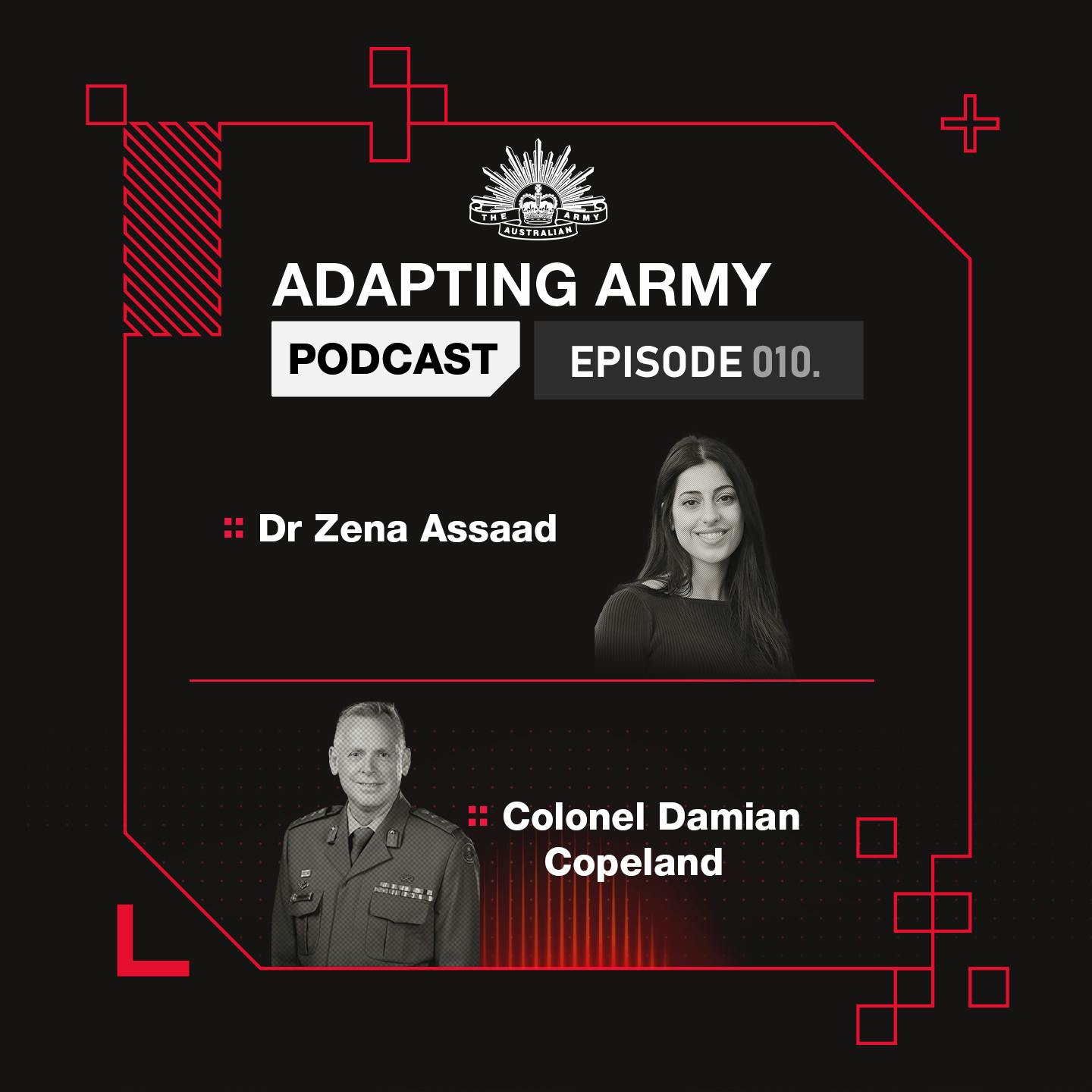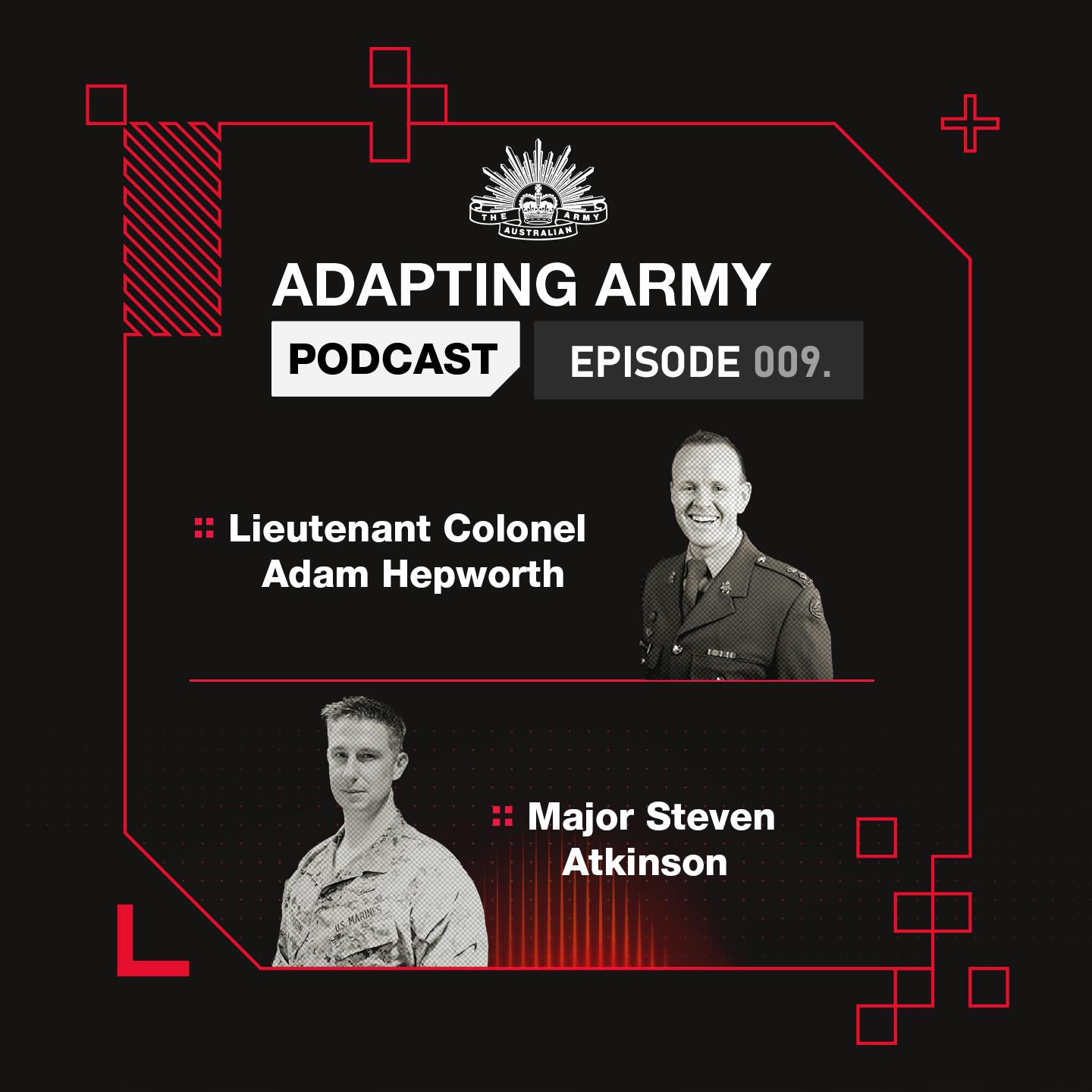464 episodes


This audio article discusses how and why Defence could better accommodate serving mothers for improved recruitment and retention outcomes.


This audio article argues for a less punitive approach to correcting behaviour in the Australian Defence Force.


This audio article explores the importance of taking ownership of a problem in order to solve it.


This audio article argues for an enhanced focus on human performance by leveraging the opportunities presented with the raising of the Health Brigade.


The Defence Strategic Review was released on 24 April 2023. The DSR recommended far reaching changes to the Australian Defence Force’s (ADF) strategic posture and capability in response to what it termed ‘radically different’ strategic circumstances. The DSR focuses on three things: (1) a specific threat, being the threat posed to Australia’s interests; (2) an integrated all-domain force with an emphasis on long-range precision strike; and (3) a strategy of denial (more particularly deterrence by denial). It implies a focus for the Army on land-based long-range precision strike, land-based air and missile defence, and close combat from or through fortified positions from the sea (littoral manoeuvre). The DSR has drawn a share of criticism. So in this episode of The Cove Podcast, we sit down with the Deputy Chief of Army, MAJGEN Chris Smith DSC, AM, CSC to explore this in more detail and get his thoughts on what it all means for Army.


This audio article promotes the need for Army personnel to become fluent in communicating their intent so as to better harness AI.


This audio article presents the rise of AI and Machine Learning as an opportunity for the ADF to enhance its Intelligence, Surveillance, Target Acquisition, and Reconnaissance (ISTAR) operations.


This audio article takes another look at the logistics lessons from the Russia-Ukraine war to date.


This audio article describes an ex-soldier’s approach to transition from the ADF to civilian life, including tips on how to smooth out the process.


A review of the book ‘First, Break All the Rules’, which details a study into what some of the world's greatest managers do differently.


This audio article warns service members to prepare for transition early and provides some resources for transition.


This audio article emphasises the importance of, and provides some principles for, achieving sustainable logistics capacity under contest.


This audio article explores how to become a leader even if you do not immediately take to the role.


This audio article argues for the de-linking of career management decisions and professional development to improve both aspects.


This audio article discusses the use of Reservists deploying as functional units in future high intensity conflicts, as opposed to deploying as individuals in specialist roles.


In this audio article we remember the double raid of Warneton 1917 and looks at why it was so successful.


This audio article discusses the ongoing effort to transform ab-initio training in Army.


This audio article warns against recklessly adopting new pedagogical methods at the cost of abandoning tried and true methods.


This audio article discusses the current approach to tackling unacceptable behaviour through integration in the training transformation system at DFSS and elsewhere.


This audio article explores how the ADF has used the Electro Magnetic Spectrum (EMS) on operations and deployments to pass orders, conduct administration and organise activities.


Can we trust autonomous systems? Are our laws and policies keeping pace with emerging technology? Who is accountable for the actions of an uncrewed or autonomous system? In this episode of the Adapting Army Podcast, were joined by Colonel Damian Copeland, the Director of Operations and International Law, Department of Defence. Damian has immense experience in the legal review of weapons, specifically weapons and systems enhanced by Artificial Intelligence. We’re also joined by Dr Zena Assaad, who is a fellow with the Australian Trusted Autonomous Systems Defence Cooperative Research Centre and the Australian National University. Zena has made fundamental contributions to inform Army’s understanding of the paradigm between trust and autonomous systems. Our guests discuss accountability and control, the laws that guide uncrewed and autonomous technology and explore trusted systems, highlighting an international example where an autonomous system didn't perform as expected and how that impacted public trust.


This audio article discusses the risks and benefits of expanding 'The Internet of Military Things', where networked devices are dispersed throughout the military to carry out and co-ordinate a variety of tasks.


This audio article provides a short summary of microcredentials and whether they should be considered for use within Defence.


In this audio article, Tom McDermott provides 12 reflections on his time in command.


This audio article suggests that Defence Assistance to the Civil Community should be seen not just as a duty and opportunity to help the nation, but also as an opportunity to improve Defence itself.


Where is artificial intelligence going? How do we empower our workforce to embrace and use new capabilities? How can we best leverage the resources we have? These are some of the questions the Australian Army and the United States Marine Corps are working together to solve. In today’s episode we are joined by Major Steven (Spike) Atkinson from the Marine Corps Warfighting Lab, who is leading the Robotic, Autonomy and Artificial Intelligence branch in the United States. Lieutenant Colonel Adam Hepworth has returned for another episode, sharing his insights from the Robotic and Autonomous Systems Implementation and Coordination Office. In our discussion, you’ll hear how the United States Marine Corps, and the Australian Army are approaching emerging technology, together. Highlighting the importance of information exchange and shared experimentation to identify capability gaps, integrate technology and leverage shared opportunities.


This audio article discusses innovation within Army and illuminates a number of the options available to personnel who wish to innovate.


Studying past and current mass offensives improves the competitive advantage of a modern military force. For the first time in decades, the world has two near peer state adversaries facing off in conventional combat. The conflict between these two nations has presented lessons for both the combatants and analysts.


This audio article argues for the inclusion of vaccination programs within the Australian Defence Force’s regional engagement strategy.


This audio article addresses the importance of respect and co-operation between ADF and Australian Public Service personnel.